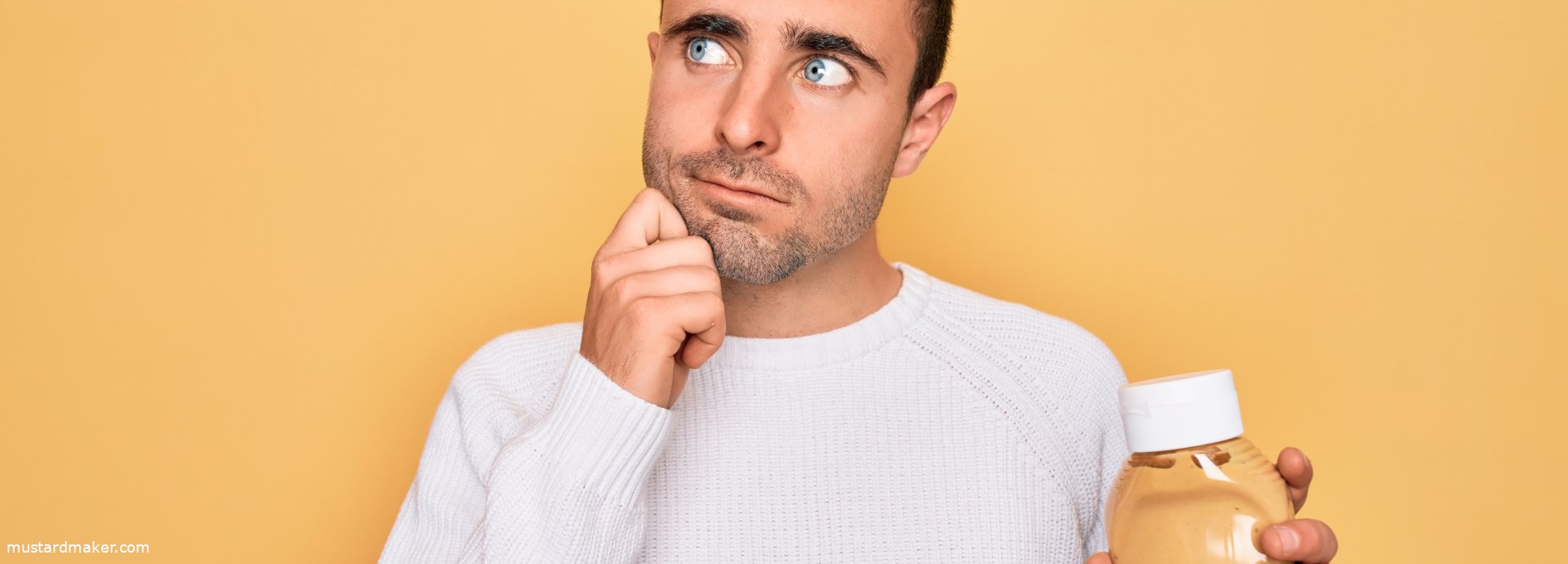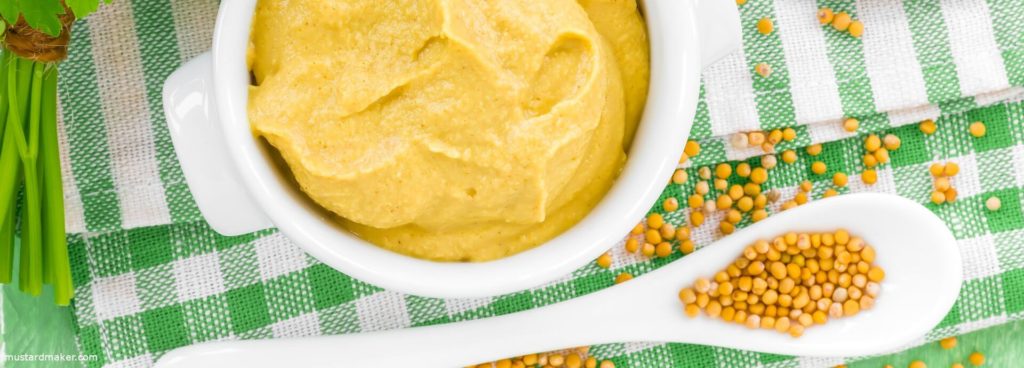Things to know about mustard
Bratwurst with mustard, mustard celebrations, meat with a mustard crust or even a mustard dressing for the salad: mustard is part of modern cuisine. We have taken a closer look at the healthy pungent and its effects. It has been proven that mustard makes fats easier to digest, and many other health benefits are attributed to mustard.

Table of Contents
Mustard refers to either mustard seeds or mustard as a condiment from a tube or in a jar. Mustard is made from mustard seeds: from the white or yellow mustard (Sinapis alba), brown mustard (Brassica juncea) and black mustard (Brassica nigra). The mustard oils are responsible for the pungency, as is the enzyme myrosinase, which is added to liquid after crushing or grinding. This produces the pungent isothiocianates. In white mustard, the pungent sinalbin sets the tone. In brown mustard or black mustard, sinigin provides the pungency.
Where does mustard come from?
Mustard originates from Asia. In ancient China and Egypt, mustard was already valued for its pungency. The Romans brought mustard seeds back from their campaigns and used mustard as a condiment. The Greeks, in turn, used the condiment for its health benefits and healing properties for internal irritations. In Central Europe, mustard spread only late. For a long time mustard was simply a weed in the fields. In the 13th century, the Dukes of Burgundy issued quality guidelines for mustard production. The city of Dijon received the monopoly for mustard production. Dijon mustard is still produced today according to these guidelines. The first mustard factory in Germany was founded in Düsseldorf in 1726 by Bernhard Bergrath. Düsseldorf mustard is still available today under the name “ABB”. Today, mustard lovers can find many mustard varieties and flavors in stores.
The mustard
The fact that mustard is healthy has been known for a long time. Both the mustard seeds and the preparation of mustard is healthy. Some people tolerate mustard on the skin and internally worse than others. Therefore, mustard should be tested for tolerance before use. For a long time, mustard has been used to treat many ailments. However, scientific research is still lagging behind and many examples of use are based on traditional recipes and folk beliefs rather than scientific evidence. The same applies to cancer prevention.

Is mustard healthy?
It is suspected that the secondary plant compounds in mustard could help against cancer, but sound studies are still lacking. One study has shown that cells from mustard eaters were better able to deal with carcinogens than non-mustard eaters. What is certain is that mustard stimulates the formation of digestive juices and promotes blood flow. Sinalbin can kill bacteria. The spicier the mustard, the better it seems to exert its effects. Mustard can be used preventively and acutely, for example as a mustard foot bath that promotes circulation, mustard compresses for bronchitis or mustard for heartburn.
Around the mustard
As versatile as mustard is, as sensitive is home-made mustard. Mustard should be stored in a cool, dark and airtight container so that it does not lose its flavor and effect. Mustard in pregnancy is safe in normal quantities, unless there is a mustard allergy. Mustard is not always vegan. What you need to pay attention to, you can learn from us.
Can mustard go bad?
Yep. Mustard, just like honey, doesn’t go bad, but it does change color and consistency.